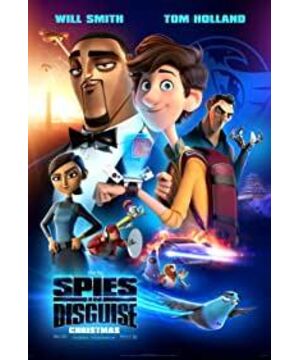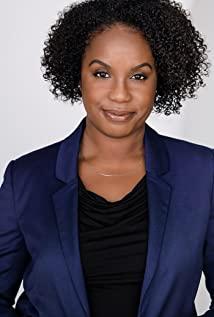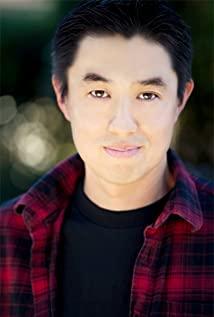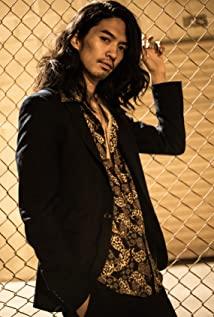In any case, "Broken Agent" is not beyond the definition of "traditional Bond film", even with the addition of pigeons and political views as the textual basis, we can only say that this is just a new variation of an old story. However, as a family action comedy animation film, the production team's grasp of the rhythm of the film is perfect, so that the audience is completely immersed in it, and the ideology conveyed through the film is also recognized by the audience during the operation of the film machine. The point of view in it also realizes the objectification of the other through this identification. In other words, the excellence of the American animation and film industry embellishes the expression of opinions and makes them worthy of cultural analysis. There are some classic issues in the film: race, gender, orientation. Although these issues are mainstream in mainstream American society, they are not well represented in the film. Taking gender issues as an example, the film mainly deals with female issues and transgender issues. However, as a traditional male-oriented genre film, women tend to occupy a "passive position": in one incident, women are either evil antagonists, or helpers in the actions of vassal men, or wait for men to save, and at the same time "Objects" that show the spectacle of eroticism. The same is true for this film: operator Ma Qian acts as an enemy trying to arrest Will Smith in the first part of the film, and becomes a helper who assists him in fighting the villain in the latter part. And since New Hollywood's vulgar absorption of feminism, this film is inevitably popular, and Ma Qian is finally portrayed as a typical action movie supporting actress: witty, a little sense of humor, and stereotyped diligence. On the other hand, when the film explores the concept of transgender, spontaneity may be greater than consciousness. The pigeon version of Will Smith was favored by both Jeff and Goo, but he ended up being a male outsider, but he was identified as a female because of a bird egg. Is this all for entertainment purposes? Or the production team consciously did it, and it is not clear. In addition to this series of classic issues, the main issues discussed in the film may be more valuable. This view can be summed up in two sentences: 1. There are no absolute bad guys or good guys 2. These two points that it is wrong to hurt anyone are central to the film's repeated emphasis, and its fraternity stance is equally attributable to it. In order to maintain the self-sufficiency of ideology, the text of the film has indeed achieved "sound reasoning", combining the internal logic of the text with the external emotional rendering to ensure that the audience does not feel that it is a drama. An event that precedes the film's story: Kyrgyzstan. This incident made Will Smith firmly believe that the only way to maximize interests is to "control violence with violence", and it also directly led to the birth of the villain. The film does not shy away from naming names and criticizing America's misuse of arms and violence in all known areas of the world, especially in the Middle East. And this criticism gives us clues to the logic of the film: Remember the war in Afghanistan? The victims of the past became victims because of hatred, and the original victims became victims in this endless revenge. The tighter the bald eagle that maintains world peace embraces this world, the more the enemy in the war on terror will be. strong. The identities of the good and the bad are constantly changing to each other. Maybe because of a certain idea, maybe because of the so-called "weapons of mass destruction", everything is resorted to force, hatred is sown, and human beings hurt each other again and again. The binary representation of good/bad is no longer reliable due to differences in positions and interests, and good and evil become a dialectical process rather than an absolute concept. So choose to treat everyone equally, so choose fraternity. By removing the alienation of the individual by the "symbolic order", we can redefine morality: all harm is wrong. And only nonviolent fraternity can close the rift of hatred that Satan has drawn between us, and can stop the rounds of revenge and killing between brothers and sisters. After completing the weaving structure of the inner logic of the text, the film uses symbolic rhetoric to win the audience's recognition from the emotional level. Overlooking the National The green space of the Mall, the pond, the Washington Monument and Pennsylvania Avenue, the viewer may think of those young hippies who gathered in Washington, D.C. in the 1970s: sitting around the green space singing, drinking beer, anti-war protests, slogans and sex. This is undoubtedly a clear anti-war historical mark. There may be a nasty irony in setting the agent base under the National Mall: the violence is quietly progressing under the veneer of peace and progress. However, it cannot be ignored that no matter how the film emphasizes the stance of fraternity and non-war, the text itself is still a traditional story of the victory of justice over evil, and the only thing that has changed is the moderation of the means of conquest. But conquest that minimizes violence is still conquest, just as modern warfare that minimizes human losses is still war. The narrative level recognizes the non-lethality of modern technology and weapons, but ignores the unaltered nature of violent conquest, so that the ideology of non-violence that is vigorously implemented has become a cover for modern warfare. Just imagine, what kind of situation will the villain captured by the agents be in? Will the agents take them to federal court for procedural justice rather than lynching them for information? Remember that Will Smith, who broke several laws, was still forgiven by the organization and returned, which shows that the law is not the highest law in the ideology of the film. Even if the villain is indeed tried according to legal procedures, is it really possible for the villain who committed the "heinous crime" to gain the right to live in a country like the United States where the death penalty is still common? The most likely outcome of such a villain may not be different from the scenario in the traditional confrontation between good and evil: to be executed in the name of social security - violence brings peace. Moreover, sacrificing for fraternity is a very romantic concept, which highlights its unrealistic side when it is directed towards the white elite, or "white left". Can fraternity really save the people of the world? Is anti-war really feasible in a world where the economy is completely unfair? Can the development of science and technology really be carried out under the control of human kindness, and not completely out of control and become the villain's killing machine? The fact that the ideal is completely correct in the logical structure does not mean that it can be practiced in the real world: our crazy world is too complicated, and those fairy tale dreams are often not enough to change its absurdity and cruelty, They often end up being swallowed and digested without a trace. However, feasibility and cost-effectiveness are not within the consideration of the Dutch brother. The most sincere and pure boy in the world, with a romantic idealistic attitude, only recognizes one thing: what is right or wrong. His ideas inevitably carry a kind of a priori goodness, first deciding what is wrong and what is right, and then Ideas and practices defend it. He blurs the traditional binary opposition between good and evil, blurring the line between good and bad, so as to retain a primitive human moral impulse and maintain universal compassion and sympathy for all life. In the ideal society he envisioned, hatred and hatred's revenge would disappear forever because of the non-existence of violent injuries. In contrast, the narrative level of efforts to put such characters into a modern war: a dead police mother, a 15-year-old MIT-educated super-brain, and an absolutely utilitarian and pragmatic genius killer Will Smith, we It is true that I recognize the contradiction, but it inevitably feels far-fetched. Compared with the defense of violent war under the guise of non-violence at the narrative level, perhaps Holland's character image is genuine and pure beyond the shackles of the text.
View more about Spies in Disguise reviews











